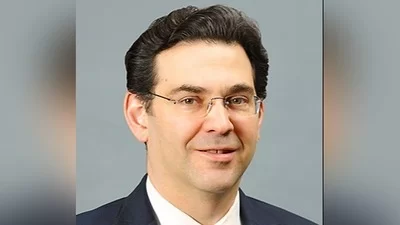State Rep. Gary Click | The Ohio House of Representatives
State Rep. Gary Click | The Ohio House of Representatives
The Leland Muhlenberg House Joint Resolution is being put forward by Representatives Gary Click (R-Vickery) and Johnathan Newman (R-Troy). This resolution encourages President Trump and Congress to abolish the Johnson Amendment, a piece of legislation that has long affected the tax-exempt status of churches and other nonprofit entities.
The Johnson Amendment was created in 1954 by then-Senator Lyndon B. Johnson in response to criticisms from groups such as Facts Forum and the Committee for Constitutional Government, which had seen him as a "closet communist" during re-election. Johnson's amendment aimed to remove tax-exempt status from politically active organizations, indirectly affecting churches due to their shared tax classification.
Professor emeritus at Purdue University, James Davidson, commented, "Johnson was primarily targeting right-wing political groups... However, he worded the amendment to apply to all 501(c)(3) tax-exempt entities, including churches—not because of religion, but because they share the same tax status." George Reedy, Johnson’s chief aide, confirmed that churches were not specifically targeted in the amendment’s intent.
Under current law, churches are automatically considered tax-exempt if they meet specific criteria as outlined in IRS Publication 1828. Boris Bittker, a legal scholar, noted in a 1969 article that the status of churches is better described as 'immunity' rather than ‘exemption.’ He explained, "The term ‘exempt’ implies the authority to tax, granted as a privilege, whereas ‘immunity’ acknowledges the government’s lack of authority to regulate or tax."
The historical context reveals that America was built on religious liberty, though initial implementation included errors such as state-funded churches. Over time, government funding of religious institutions was stopped, but the threat of taxation remained a tool against religious groups. The resolution echoes the influence of religious figures in America’s foundation, like John Peter Gabriel Muhlenberg, Frederick Augustus Muhlenberg, and John Leland.
Previously, legislation such as the Free Speech Fairness Act, promoted by Representative Steve Scalise and supported later by Senator James Lankford, sought to revoke the Johnson Amendment. An executive order by President Trump in 2017, 'Promoting Free Speech and Religious Liberty,’ remains active, demonstrating bipartisan acknowledgement of the importance of religious expression in the political sphere. Dr. Martin Luther King Jr. serves as a historical example of religious leaders' impact on societal issues beyond the boundaries of faith communities.
Supporters believe repealing the Johnson Amendment is necessary to uphold First Amendment rights. They argue that the participation of churches in political matters should be determined by the churches themselves, not government legislation. Opposition to this amendment continues to be framed as a fight to restore the foundational liberties of the United States.


 Alerts Sign-up
Alerts Sign-up